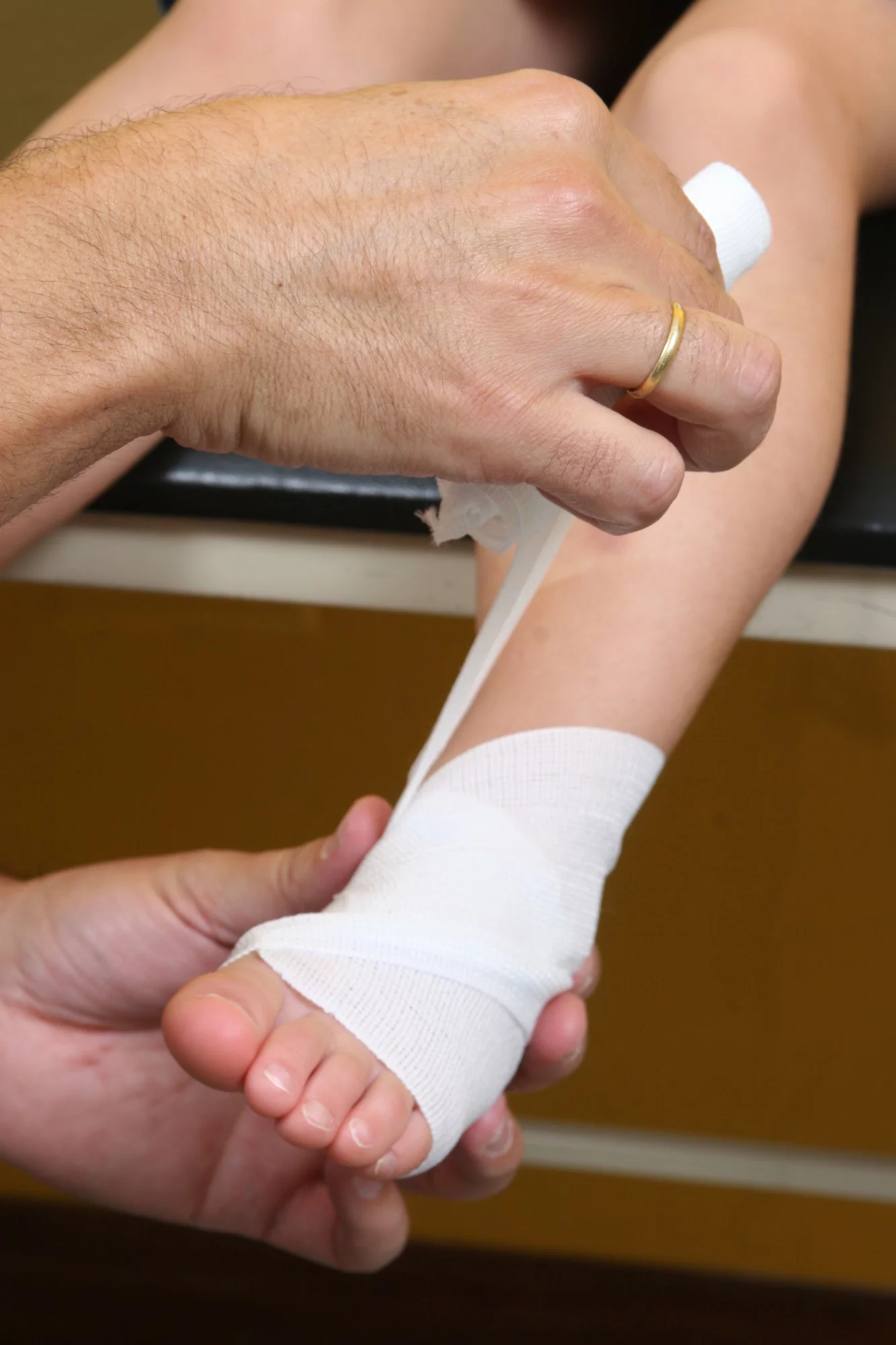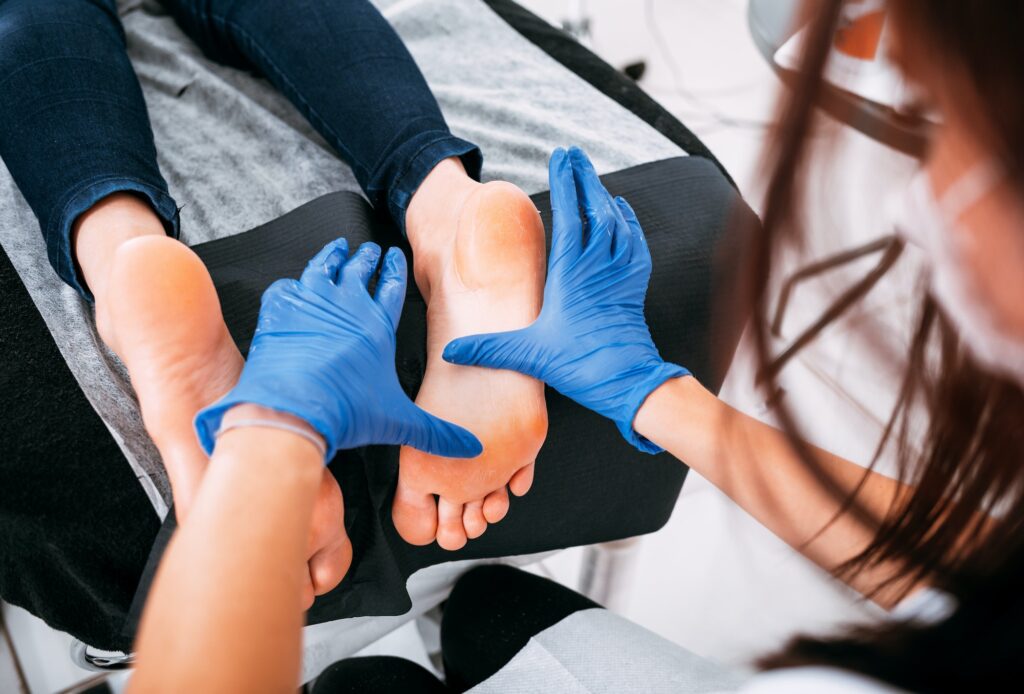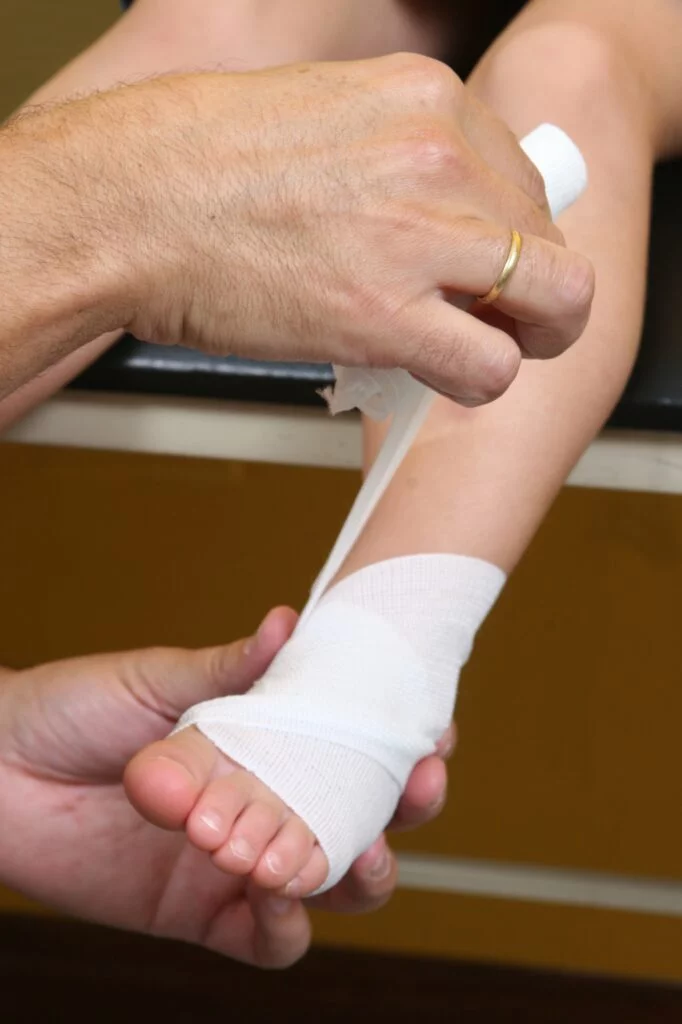What is Plantar Fasciitis?
Plantar fasciitis is the medical term for inflammation of the plantar fascia located on the soles of your feet. The plantar fascia is made of tight, dense connective tissue and provides support to the arch of your foot.
In many cases, plantar fasciitis only affects one foot though it’s possible to have symptoms on both feet. Symptoms of plantar fasciitis include:
- Heel pain
- Sharp pain when taking your first steps after getting out of bed in the morning
- Sensation of tears or cuts in the soles of your feet
- Aching in the arches of your feet
- Increased pain after long periods of standing or once you stand up after sitting
If left untreated, plantar fasciitis can become a chronic issue, and the longer you have it, the longer it can take to heal.
What Causes Plantar Fasciitis?
Plantar fasciitis develops when the soles of your feet stretch to the point that small tears develop in your plantar fascia. These small tears cause inflammation and pain. Different things can lead to over-stretching of the plantar fascia, like: Certain types of exercise, like running, dancing, and jumping activities Standing on your feet for extended periods of time Being overweight or gaining weight suddenly Foot conditions, like flatfoot and high arches Plantar fasciitis develops most often in adults from ages 40-60, though it can occur sooner or later.
How Can I Prevent Plantar Fasciitis?
We provide specific instructions for you to prevent plantar fasciitis or recover from it once you receive a diagnosis. In most cases, wearing supportive, comfortable footwear and stretching can help prevent plantar fasciitis from developing. Stretches that focus on your feet and calves are the most important to reduce stress on your plantar fascia. Maintaining a healthy weight and sticking to a regular exercise routine can also help keep your muscles and joints healthy without putting excess pressure on your feet.
How is Plantar Fasciitis Treated?
Treatment for plantar fasciitis focuses on reducing inflammation and allowing the small tears in your plantar fascia to heal. Your provider can recommend:
- Non-steroidal anti-inflammatory medications
- Physical therapy
- Orthotics
- Athletic taping, night splints, and braces
For severe cases, your podiatrist offers injections, extracorporeal shockwave therapy, the Tenex procedure, and surgery to relieve your pain. Begin healing your plantar fasciitis now by calling us or scheduling a visit online.



